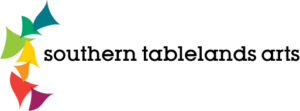William Charles Wilson: Great Southern Line
Engine cleaner promoted to Fireman 1909 – 1914. Resigned and applied unsuccessfully for re-employment in 1915. At this time he enlisted in Divisional Ammunition Column (artillery transport). Transferred to 6th Railway Operating Company in 1917 under Command of Captain William James (see separate listing). Served as engine driver in Belgium and France. Recommended by James for a Distinguished Conduct Medal which was not approved. Discharged 1919 and re-employed that year as cleaner at Eveleigh (Lower level than before. As not employed on railway when enlisted his original position not guaranteed). Resigned 1922 but re-employed at Goulburn as cleaner with work as acting fireman from 1925 until an untimely death in 1934 aged 42.
Born 1892 near Goulburn. Twenty four years old and married with one child when he enlisted.
Pattern of resigning from railway and reapplying for work. The first time he did this his wife, Elsie, applied to have his payout paid directly to her. This was refused by the railways and by the local MP
Story of bravery leading to medal recommendation
When driving a troop train between Passchendale and Ypres averted a collision with 20 runaway wagons of ammunition by reversing his train and so allowing the wagons backing towards his train at speed to come to an orderly stop at point of connection. This required significant manual strength and skill
After his return to Australia Bill applied for and was approved for re-employment with NSWGR. After working mainly at Eveleigh as a cleaner for several years he resigned. He was again re-employed, this time at Goulburn where his war time commander, William James, was employed as steam shed supervisor. His record shows that while he was appointed as cleaner he also acted as fireman at Goulburn. He shot himself in his woodshed not long after James was promoted to Divisional Superintendent. (It seems possible that the new Steam Shed Supervisor was not as supportive as James.) By then Bill’s son (John’s father) having completed his apprenticeship, was also working for the railways at Goulburn.
William James and Bill Wilson
William James and Bill Wilson were at opposite ends of the railway hierarchy. William James had risen from fitter’s apprentice at Goulburn to Steam Shed Inspector at Eveleigh when the War began. Bill Wilson had risen from engine cleaner to fireman and then resigned from the railway to work elsewhere in Goulburn. The War and its aftermath brought them together. Bill Wilson enlisted in 1915 and initially served in an ammunition column where the main work was transporting artillery. William James was appointed commander of the New South Wales Railway Unit which formed at the end of 1916 and served in Belgium and France from 1917. At that time Bill Wilson transferred to the railway unit. During Bill’s service in the unit William James recommended him for a bravery award which did not eventuate. William returned to work at Goulburn as Steam Shed Inspector. Bill was re-employed by NSWGR and worked at Eveleigh as an engine cleaner. After resigning from this position he was re-employed again at Goulburn Loco where William was manager. Bill’s family knew him as a troubled alcoholic. For nearly 10 years he had steady employment as a cleaner and acting fireman at Goulburn Loco. His untimely death coincided with William’s promotion to Divisional Locomotive Superintendent.
The Story of Bill Wilson as told to Dr Mary Hutchison by John Wilson, grandson.
My father passed away 10 years ago. He didn’t tell me much about my grandfather. He did say that he was recommended for a military award when he was in the railway unit on the Somme. He stopped a collision between the troop train he was driving and ammunition wagons that had broken free from another train. He got a little certificate, a letter saying they were grateful for his actions in stopping a major incident
I have photos and a few bits and pieces about him. There’s one photo of him in uniform that was in a frame. I had that enlarged and gave it to Rocky Hill. There’s another of him back from war with my grandmother. The certificate has always been in the frame it’s in now. I don’t know who framed it.
My grandfather did a bit of engine driving when he worked on the railway before the war as well as when he joined the railway unit. When he came back he started back on the railway in Sydney and then back in Goulburn but he only worked as an engine cleaner.
He wasn’t very happy when he came back. He was slowly dying of mustard gas poisoning. Didn’t look after the family. Turned into an alcoholic and treated them pretty bad.
Dad as a nine year old went with his cousin and travelled around the shows doing acrobatics and singing. He was part of a travelling troupe – went all over Australia, knew Dame Nellie Melba. He earned 9 pounds a week in 1920 – that was a lot then. He sent the money home and put his young sister through St Josephs. She was a boarder because she didn’t want to come home to her father. When Dad came back his father treated him so badly that he left home and went to work on the railway. Did his apprenticeship as a fitter and turner. Nanna just did what she was told.
Now days there’s help for people like my grandfather, but there was just the bottle for him. In 1934 he put a shotgun in his mouth and blew his head off in the woodshed. Poor Dad had to clean the mess up. He would’ve been on the railway then, 23 years old. They weren’t happy times for him. Even the good photo of my grandfather in his uniform – I found it just tucked away in the garage. He didn’t tell me how my grandfather died – my grandmother let it slip when she was in her eighties.
Every now and again I’d ask Dad about him but all he said was that a chap at work who didn’t like my grandfather much made his life pretty hard. I said to Dad, ‘he must’ve given him a hard time!’, but he only said, ‘yes, you could say that’. I found out more from Trevor Edmonds when he was doing the research about the railway unit. That my grandfather probably went back to Goulburn because his Commanding Officer in the unit during the war, William James, had become the boss there. But when James left he didn’t have the support. Whoever took James’ job must have given him heaps and that contributed to his death.
Nan never remarried and rarely mentioned my grandfather. Sometimes his name, ‘Bill’ would come up. Pat, the sister, would hardly have known him. She was born in 1930 and he shot himself in 1934. Dad never really spoke.
In Goulburn the family lived right across the road from the railway station. I was born in 1950 and we lived there until Dad built this house (87 Grafton Street). Nan had a job cleaning the railway barracks. She did that until she was well over retirement age and lived in the same place until they pulled down the old terraces in 1966. She was the first tenant of Legacy Lodge which was built for legatees.
Dad gave 50 years’ service to the New South Wales railways with 5 years in the Airforce during the Second World War. He had his own medals but he didn’t display them and he didn’t march on Anzac Day.
Interview with John Wilson 17 May 2016
Father William Charles, known as Bill died in 1934. Don’t know date of birth (DOB). L/CPL No 9104 on a document.

Cleaner, Fireman, Cleaner
Goulburn (Eveleigh)
War Service record: NAA B2455, WILSON WC (Service no.9104)
NSWGR Employment card: Employment No. 17319, 74205
Grandson: John Wilson
 “Welcome Home”[1] photo post card: John’s father John Wilson known as Jack is on the step below his father William Charles (in uniform) surrounded by others. John doesn’t know the location or the other people but thinks that the older couple beside William Charles and his wife (his nanna) are his nanna’s parents. Thinks his father was about 8 years old in the photo.
“Welcome Home”[1] photo post card: John’s father John Wilson known as Jack is on the step below his father William Charles (in uniform) surrounded by others. John doesn’t know the location or the other people but thinks that the older couple beside William Charles and his wife (his nanna) are his nanna’s parents. Thinks his father was about 8 years old in the photo.
Says his grandfather didn’t have or doesn’t know if he had any medals from the war. Nanna was born in the 1890s. Nanna had three sisters – she was a middle daughter.
STA MEMBERSHIP
free & connects you to the STA universe
Reach out to us
[email protected]
0427 938 110
Or by appointment at one of our
Mobile Office locations
PO Box 1323 Goulburn 2580
ABN 67 208 214 681
We acknowledge Aboriginal people as the traditional custodians of the lands where we create, live & work.
© Southern Tablelands Arts. All Rights Reserved




